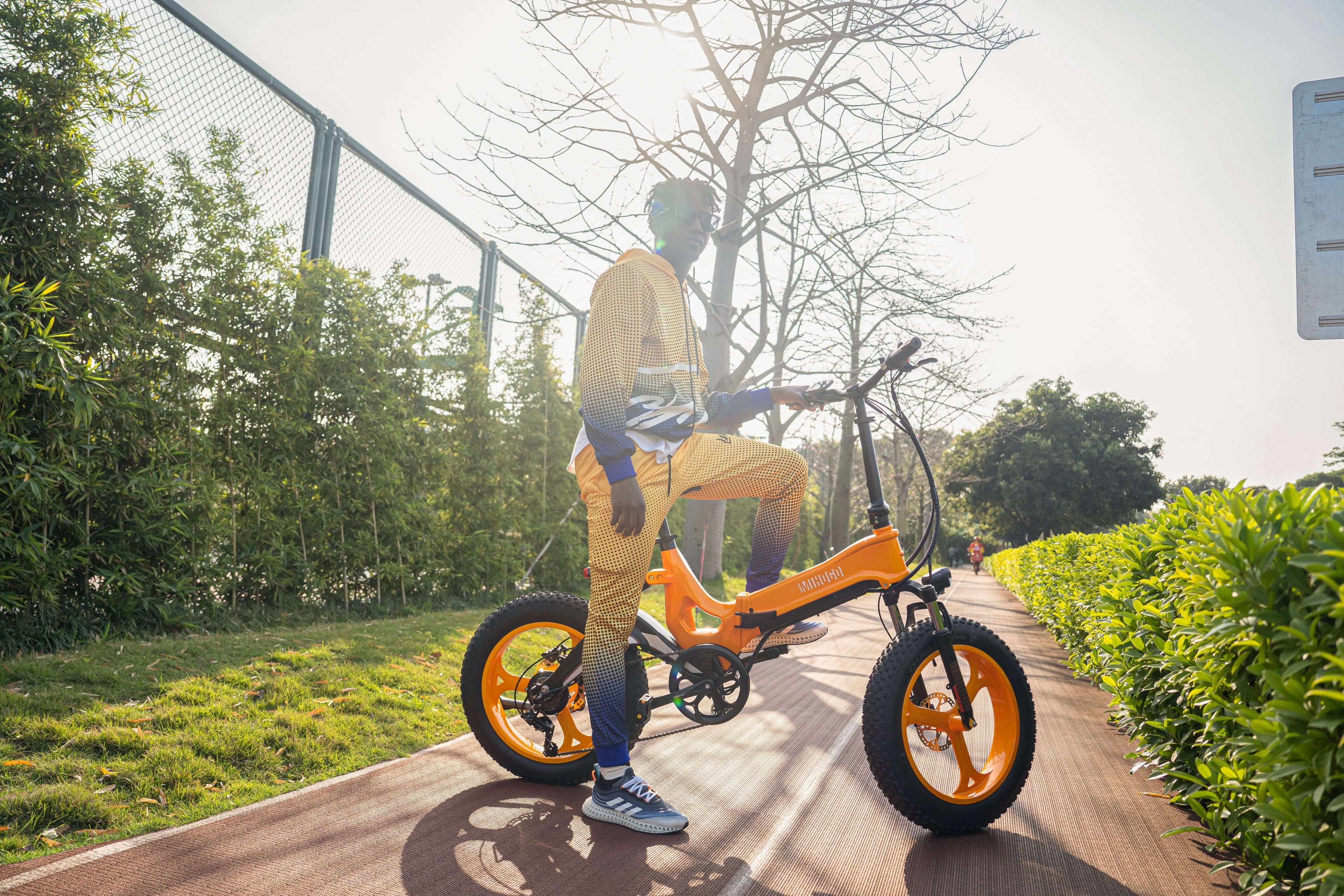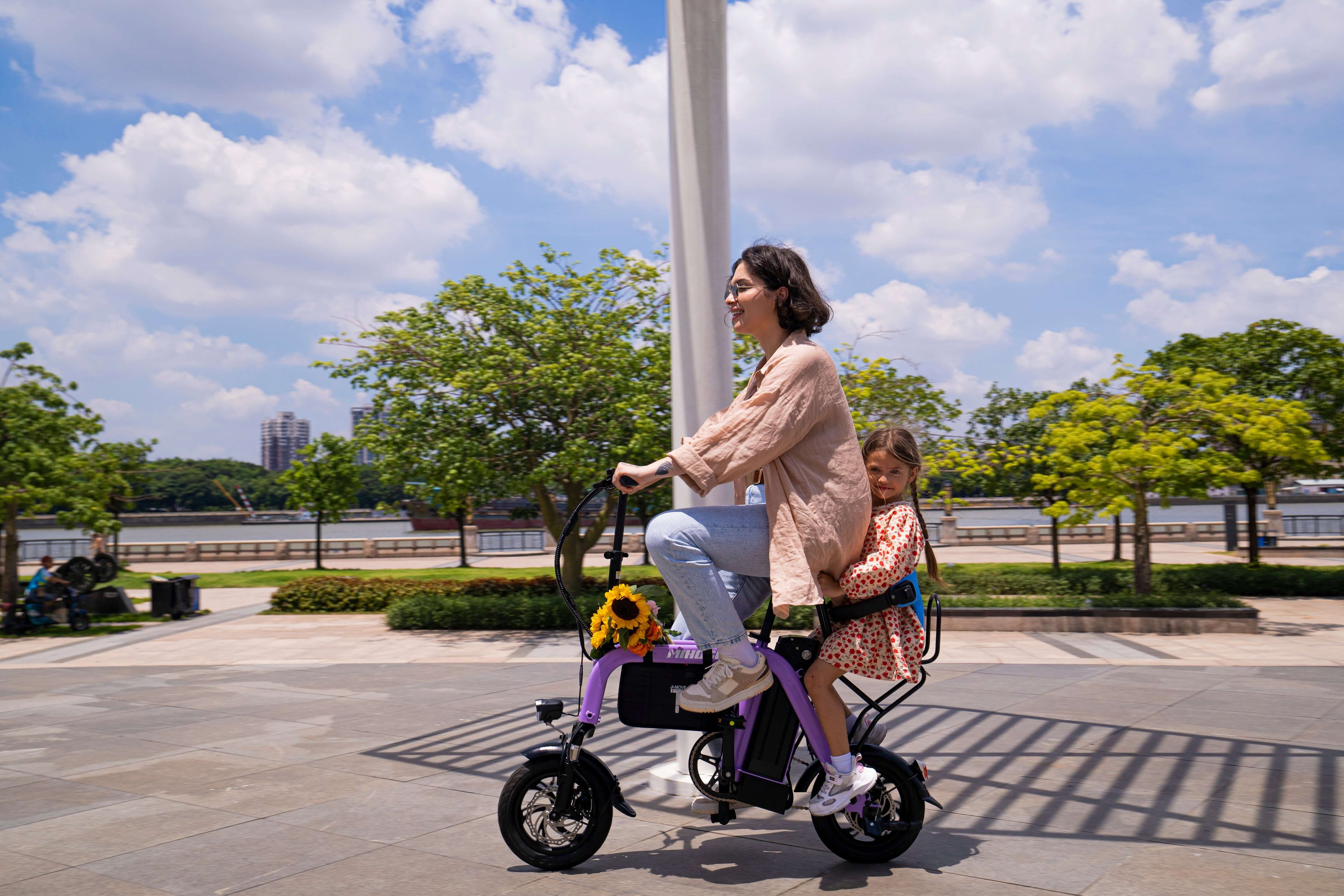Understanding Electric Bike Control Systems: The Foundation of Your Ride
The way an electric bike delivers power fundamentally shapes your riding experience. Two primary control philosophies dominate the ebike market: pedal assist systems (PAS) and throttle control. These technologies represent different approaches to human-motor interaction, each offering unique advantages for various riding scenarios and rider preferences.
Understanding these control system differences becomes crucial for selecting the perfect electric bike match that aligns with your fitness goals, commuting needs, and riding style.
What is Pedal Assist?
Pedal assist works by using sensors to detect your pedaling motion and activating the motor to provide proportional power. The more you pedal, the more assistance you get. This system enhances speed and efficiency while maintaining a natural riding feel that closely mimics traditional cycling.
E-bike pedal assist operates through sensors that detect your pedaling cadence or torque, which then signals the motor to deliver power proportionate to your effort.
Pedal Assist Levels in Mihogo Bikes:
- Eco Mode: Minimal assistance, optimizing battery life and promoting a more natural riding experience
- Normal Mode: Balanced level of assistance for everyday commuting and recreational riding
- Sport Mode: Higher levels of assistance, allowing riders to tackle hills and cover longer distances with less effort
What is Throttle Control?
Throttle systems operate by sending a signal to the motor controller when the rider activates the control mechanism, delivering power directly from the battery to the motor without requiring pedaling. This allows immediate acceleration and is ideal for quick starts or stop-and-go traffic.
Throttles apply power incrementally by generating a variable voltage usually between 0 and 5V, which the bike controller converts into a power level.
Mihogo Throttle Types:
- Thumb Throttle: You can push down the lever with your thumb to control the power. Thumb throttles offer precise control but may cause hand fatigue during extended use
- Twist Throttle: You'll have to twist a grip on the handlebar to control the ebike's power. Twist throttles provide the smoothest power delivery and are most comfortable for extended throttle use
Mihogo's Advanced Dual-Control Technology
Sophisticated Torque Sensing Systems
Mihogo Air750 Max: Precision Engineering
The Air750 Max's dual-arm torque sensors are precision instruments, ensuring that every ounce of power is channeled optimally from both left and right pedals. This sophisticated system provides the most natural pedal assist experience available.
Mihogo ONE Utility: Smart Cargo Performance
The ONE Utility's torque sensing system ensures that whether you're carrying heavy cargo or tackling steep grades, power delivery remains smooth and predictable. Experience a remarkable boost in range with the option of pure electric and five pedal assist modes.
Mihogo RX 2.4: Urban Commuter Excellence
The pedal assist is smooth and responsive, which is great for when I hit hills or just want to take it easy, as noted in customer reviews. The RX 2.4 facilitates smooth gear shifting, providing you with the flexibility to customize your power and speed to match your unique riding style.
Mihogo Mini: Efficient Entry-Level Performance
Despite its compact size and affordable price point, the Mini delivers impressive pedal assist performance with its high-performance 350W brushless motor, ensuring an exceptional riding experience with enhanced power and control.
Comprehensive Comparison: Pedal Assist vs Throttle
⚡ Performance and Efficiency
Pedal Assist Advantages:
- Typically, pedal assists are more energy-efficient than throttle control
- Torque sensors particularly excel at battery optimization because they provide proportional assistance, using only the power needed to complement rider effort
- Extended battery life and superior range compared to throttle-controlled ebikes
- If you're using the pedal assist you're going to be able to hit way higher top speeds than you would on full throttle because you're combining human power with motor assistance
Throttle Control Benefits:
- Throttle control provides instant power on demand, ideal for quick starts or stop-and-go traffic
- Immediate acceleration without the need for pedaling
- Perfect for situations requiring sudden bursts of speed to merge with traffic
🏋️ Fitness and Exercise Benefits
Pedal Assist for Active Riders:
- Encourages active participation and physical exercise
- Maintains the traditional cycling experience with added power
- Riders can enjoy a moderate to heavy level of exercise, improving cardiovascular health, muscle strength, and overall fitness
- You still pedal, you still shift gears, and you still get a workout—the system simply makes it easier
Throttle for Accessibility:
- Reduces physical strain for riders with mobility limitations
- Provides complete rest periods during long rides
- Ideal for older riders or individuals with limited mobility affecting their ability to pedal consistently
🔋 Battery Life and Range
Pedal Assist Efficiency:
- Pedal-assist ebikes typically have longer battery life because riders are actively contributing to propulsion
- Mihogo's dual-arm torque sensors deliver a remarkable 23% boost in battery life compared to single torque sensor systems and an astounding 105% improvement compared to speed sensor systems
- Combined with proper and efficient gearing use, riders can cover greater distances on a single charge
Throttle Consumption:
- Throttle control typically consumes more battery energy since the motor handles the entire propulsion load
- Using the throttle only is the fastest way to drain your battery
- Best used strategically for specific situations rather than continuous operation
🚦 Urban Commuting Applications
Stop-and-Go Traffic:
- Throttle advantage: Perfect for navigating busy intersections and quick acceleration from traffic lights
- Pedal assist advantage: More gradual acceleration provides better control in crowded urban environments
Hill Climbing:
- Pedal assist advantage: Leverages your natural pedaling motion for efficient hill climbing
- Throttle advantage: Provides instant power boost without requiring pedaling effort
Legal Considerations and Ebike Classifications
Understanding Ebike Classes with Mihogo
Class 1 Electric Bikes: Electric bikes that fall into Class 1 are pedal-assist only, which means that power is only delivered when the rider is moving the pedals. Motors on Class 1 bikes support top pedal-assisted speeds up to 20mph.
Class 2 Electric Bikes: Class 2 e-bikes have a top motor speed of 20mph and include both pedal assist and throttle capabilities. The throttle will propel the bike forward without any help from the rider, similar to an electric scooter.
Class 3 Electric Bikes: Class 3 bikes can assist you up to 28mph with pedal assist, ideal for conquering steep climbs efficiently. These models focus on enhanced pedal assist performance rather than throttle operation.
Mihogo's Flexible Design: ONE MAX ships as a Class II ebike, with pedal assist and throttle. ONE MAX will also operate with the throttle unplugged and removed, should you want to ride in an area where throttles are prohibited.
Real-World Usage Scenarios
Daily Commuting
- Best Choice: Combined pedal assist and throttle
- Mihogo Recommendation: RX 2.4 for urban folding convenience or ONE Utility for cargo capacity
- Why: Pedal assist for efficiency, throttle for traffic situations
Recreational Riding
- Best Choice: Pedal assist focused with optional throttle
- Mihogo Recommendation: Air750 Max for premium performance or Mini for casual rides
- Why: Natural cycling feel with assistance when needed
Accessibility Needs
- Best Choice: Throttle with pedal assist backup
- Mihogo Recommendation: All models offer both systems
- Why: Complete control over exertion level
Fitness Goals
- Best Choice: Pedal assist with adjustable levels
- Mihogo Recommendation: Any model with five pedal assist levels
- Why: Customizable exercise intensity
2025 Technology Trends in Ebike Control Systems
Smart Integration Features
- App Connectivity: Customize assist levels and monitor performance
- GPS Integration: Route-optimized power management
- Ride Analytics: Track efficiency and power usage patterns
- Remote Diagnostics: Preventive maintenance alerts
Safety Enhancements
- Motor Cut-off: Automatic power reduction during braking
- Speed Limiting: Programmable maximum speed settings
- Overload Protection: Motor protection during extreme conditions
- Emergency Protocols: Safety systems for component failures
Making Your Decision: Pedal Assist vs Throttle
Choose Pedal Assist If You:
- Want better battery efficiency and longer range
- Prefer a natural cycling experience
- Have fitness and exercise goals
- Primarily ride on bike paths and trails
- Value the traditional cycling feel
Choose Throttle If You:
- Need instant power for traffic situations
- Have mobility limitations or accessibility needs
- Want convenience for stop-and-go commuting
- Prefer effortless riding without pedaling
- Need quick acceleration capabilities
Choose Both (Mihogo's Approach) If You:
- Want maximum flexibility in riding style
- Face varied terrain and traffic conditions
- Appreciate having options for different situations
- Value the ability to adapt to changing regulations
- Desire the ultimate in riding versatility
Environmental Impact and Sustainability
Both pedal assist and throttle systems contribute to reduced carbon emissions compared to car travel. However, pedal assist systems typically offer better environmental benefits due to:
- Longer battery life requiring less frequent charging
- Reduced energy consumption per mile
- Encouragement of active transportation habits
External resource: For comprehensive information about electric bicycle environmental benefits, visit Wikipedia's Electric Bicycle page for detailed technical and environmental information.
Maintenance Considerations
Pedal Assist Systems
- Lower motor stress due to shared workload with rider
- Longer component lifespan from efficient operation
- Less frequent battery charging cycles
Throttle Systems
- Higher motor stress from sole responsibility for propulsion
- Potential for increased component wear with frequent use
- More frequent battery charging requirements
The Mihogo Advantage: Best of Both Worlds
Optimal Control Systems
Mihogo's engineering philosophy recognizes that different riding situations call for different control methods. By offering both pedal assist and throttle on most models, riders can:
- Switch dynamically between control methods based on conditions
- Optimize efficiency using pedal assist for most riding
- Access instant power when throttle control is needed
- Comply with regulations by disabling throttle when required
Advanced Sensor Technology
Mihogo's torque sensing systems provide proportional assistance that feels natural and responsive, while maintaining the option for throttle control when instant power is needed.
Future-Ready Design
With smart connectivity features and programmable settings, Mihogo's dual-control systems adapt to evolving regulations and rider preferences.
Conclusion: The Smart Choice for Modern Riders
The pedal assist vs throttle debate doesn't have to end with choosing sides. Modern electric bikes, particularly Mihogo's thoughtfully engineered models, offer both systems for maximum versatility.
The optimal approach includes:
- Primary use of pedal assist for efficiency, exercise, and natural feel
- Strategic throttle use for specific situations requiring instant power
- Flexibility to adapt to different riding conditions and regulations
- Future-proofing against changing laws and personal needs
Whether you prioritize the fitness benefits and efficiency of pedal assist or the convenience and accessibility of throttle control, Mihogo's dual-system approach ensures you never have to compromise.
Ready to experience the perfect balance of pedal assist and throttle control? Explore Mihogo's complete lineup and discover why the best choice isn't choosing between systems—it's having both at your fingertips.







